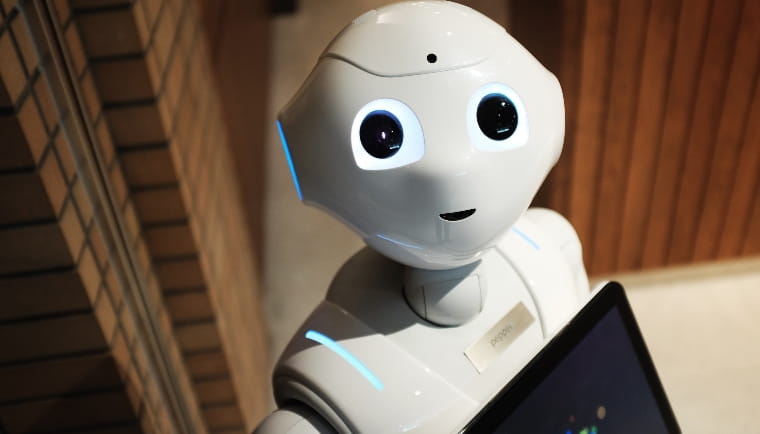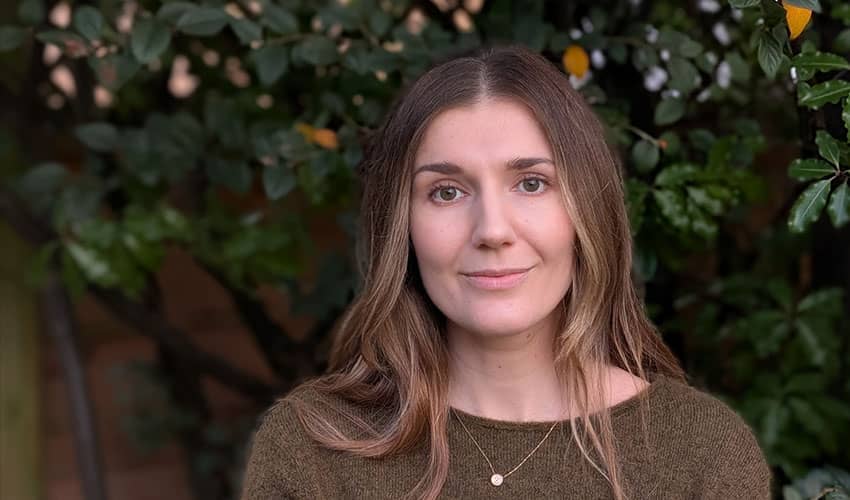Socially intelligent robot to be introduced to special needs school in innovative study

Researchers from UWE Bristol are investigating how socially intelligent robots can be used in schools to support young autistic people.
Unlike much of the previous research in this field, which has focused mainly on testing robots with autistic people within laboratories and controlled settings, the UWE Bristol study will place and evaluate a socially intelligent robot in a special needs school during term time.
The research project, which involves academics from the fields of education, robotics and architecture, will begin in November with the placement of the robot in classrooms scheduled for spring 2021.
Researchers will work closely with pupils and teachers at a special needs school in Somerset to design the project and ensure the robot addresses their needs. Over the course of two months, the robot will be placed in various classes at the school where it will be operated by a member of the research team.
The robot will take part in regular teaching as well as interacting with children to support the teacher’s activities. This will give researchers the opportunity to observe and learn how robots can be best used by schools to engage pupils, and their teachers, in social and learning opportunities. Cleaning and hygiene measures will also be in place throughout the project to ensure the robot is COVID-secure.
The socially intelligent robot, known as Pepper, is capable of joining in a range of simple social and physical activities with children, such as story-telling, games and informal chats. Programmed at the Bristol Robotics Laboratory, its behaviours and commands will focus on improving meaningful social interventions which many autistic children struggle with, such as social communication skills, joint attention (the shared focus of two individuals on an object) and exercising.
Research has already shown that people with autism can often perform better with a robot partner compared to a human partner, and that robots can be effective in helping children with autism to develop their social, communication and fine motor skills.
Senior Researcher in Digital Education, Dr Nigel Newbutt, along with Dr Louis Rice from the department of Architecture and Dr Severin Lemaignan from Bristol Robotics Lab who are also working on the UWE Bristol project, said: ‘‘This project is particularly exciting as it is one of the few studies which places a robot in real classrooms and we are putting the pupil and teacher experience at the centre of the research.
"All of our work will be guided and shaped by this important input. We consider an inclusive approach to research with autistic groups to be vital when working to understand their priorities, opportunities and challenges in using technology.
‘‘We already know that robots can offer a range of benefits to people with autism but now we can explore exactly how they work in a school setting and how children and teachers can make the best use of them; in areas identified by the pupils and teachers themselves. It will be particularly interesting to see how pupils view and engage with the robot. For example it could be seen as a friend, teaching assistant or simply a piece of equipment.’’
Socially intelligent robots like Pepper are a big expense, costing approximately £20,000 but Dr Newbutt believes they could be a worthwhile investment for schools in the future. He said: ‘‘Research in this area is still in its early stages but it has shown that robots can be effective in supporting autistic children while augmenting their learning development.
"Of course, robots can represent a big initial investment for schools but the investment could be supported with greater evidence and research exploring how, why and where such technologies offer “value-added” contexts in schools. Our research project intends to start this conversation so that schools may consider engaging with robot technology in the future.’’
Autism is a lifelong developmental disability that affects how people perceive the world and interact with others. According to the National Autistic Society, approximately one in 68 people are on the autistic spectrum and there are approximately 700,000 impacted by autism in the UK.
While autism impacts everyone differently, some of the most common challenges include: difficulty in communicating and understanding how others feel, anxiety in unfamiliar situations and finding stimuli like loud noises overwhelming and stressful.
Related news

16 February 2026
UWE Bristol researchers awarded grant to explore impact of asset recovery on offenders
UWE Bristol academics have been awarded funding to explore of the impact of asset recovery on deterring offender behaviour and disrupting crime networks.

10 February 2026
Work by UWE Bristol lecturer features in Government’s National Cancer Plan
Work by a UWE Bristol academic has been included in the Government’s National Cancer Plan.

23 January 2026
On-demand minibus services beneficial in rural areas but face financial challenges, trials suggest
Trials of ‘demand responsive transport’ minibus services boosted connectivity for people in rural and suburban areas, according to a new report produced by UWE Bristol researchers.

18 December 2025
UWE Bristol professor appointed National Institute for Health and Care Excellence CEO
Jonathan Benger CBE, Professor of Emergency Care at UWE Bristol, has been appointed as the new chief executive officer of the National Institute for Health and Care Excellence (NICE).

17 December 2025
Findings revealed from first UK study into experiences of mothers who are survivors of rape pregnancy
UWE Bristol academics have revealed the findings of the first UK-based study of the experiences of mothers who are survivors of rape pregnancy.

11 December 2025
Social media influencer work is far more demanding than it looks, research finds
A study exploring the mental health impacts of social media influencer work has revealed that life online is far more demanding than it appears.

25 November 2025
UWE Bristol experts join film Q&A exploring music and melodrama
Academics will take part in the Cary Comes Home Festival, with a post-screening Q&A exploring music, melodrama and emotional storytelling in classic cinema.

17 November 2025
Urgent reform needed to support ambulance-delivered end of life care, study finds
More than three quarters (78 per cent) of paramedics sometimes fear doing the wrong thing when caring for people in the last year of life, new research has found.

13 November 2025
Bristol’s screen industry experiences “boom-and-bust cycle” after post-pandemic recovery, new research from UWE Bristol finds
New research from UWE Bristol provides detailed insight into Bristol's screen sector.

13 November 2025
New AI research to revolutionise animal welfare
A UWE Bristol research project will combine behavioural science and AI to create technology that understands not only what animals do, but how they feel.

10 November 2025
Lessons from Low Traffic Neighbourhoods will drive better public engagement, study finds
Lessons from Low Traffic Neighbourhoods have informed a new toolkit to improve engagement with the public on challenging local street issues.

06 November 2025
First-of-its-kind study aims to help more people spend their final days at home
A new study will explore how architectural design could support end-of-life care in domestic settings.






